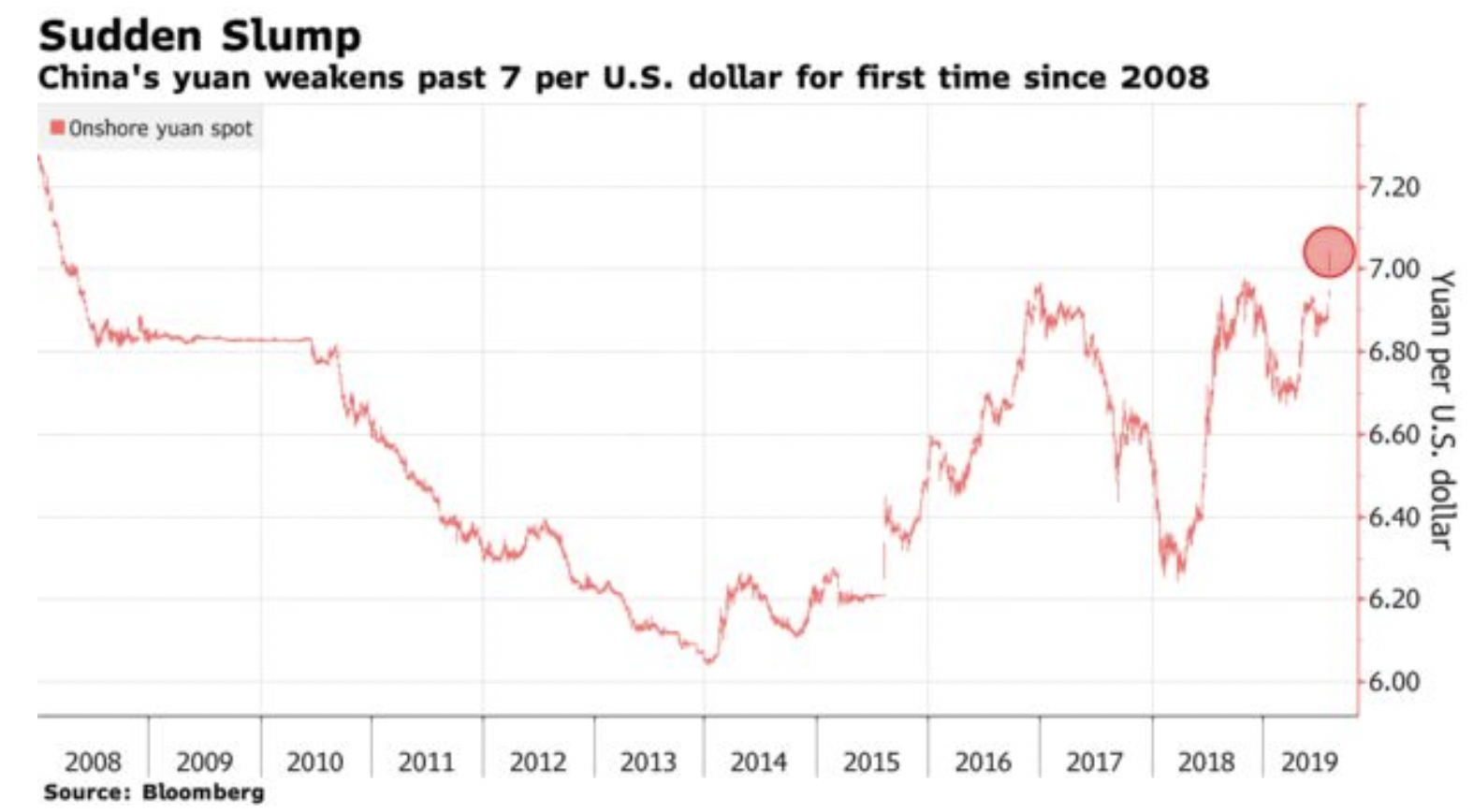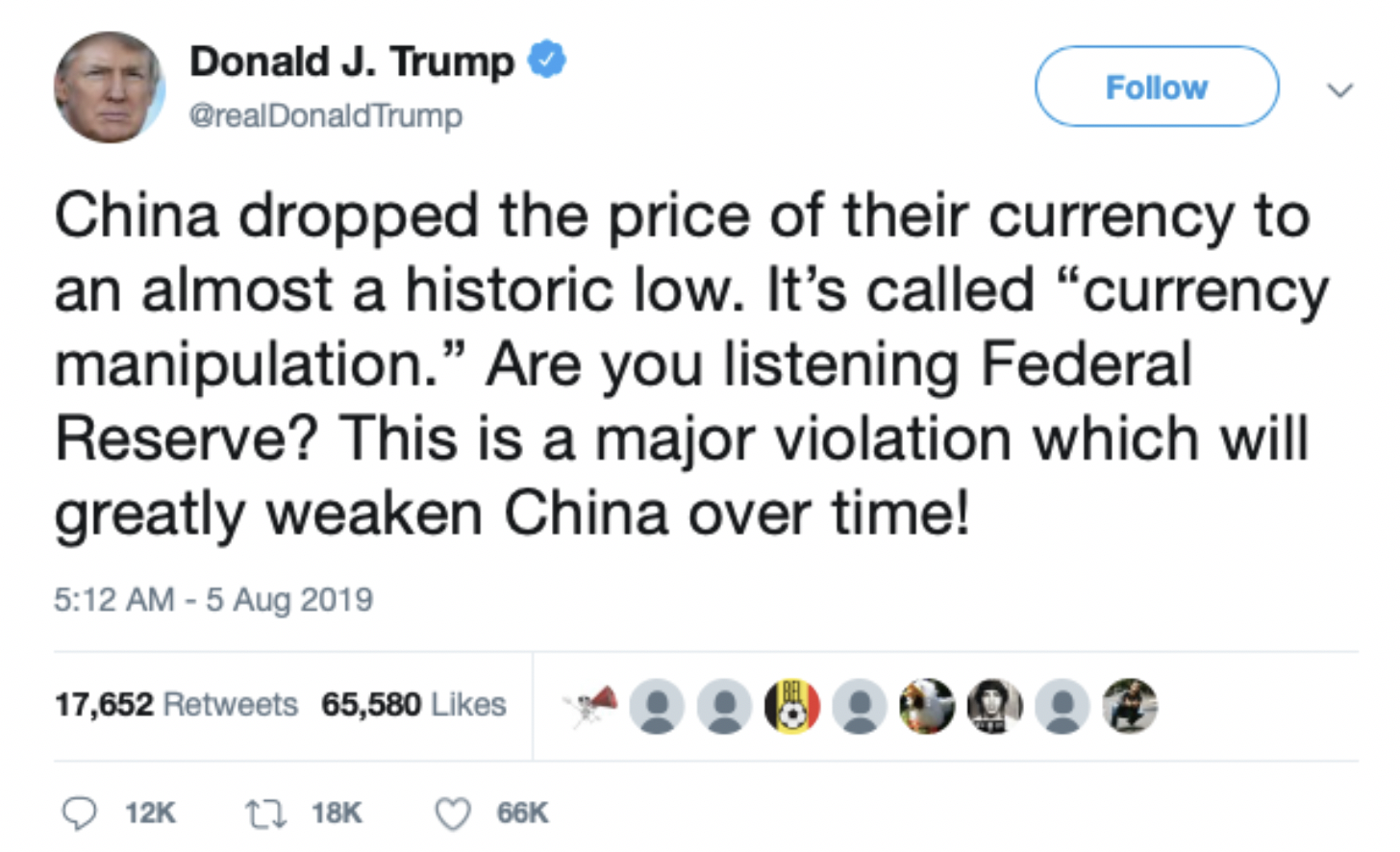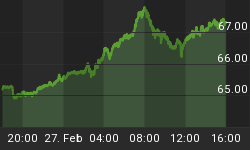With Trump declaring another 10 percent tariff on the remaining $300 billion in Chinese goods by September, and with China retaliating through currency and agriculture, we’re getting really close to Morgan Stanley’s scenario for a recession in nine months.
While Trump fumes, the rest of the world worries about recession.
In a recent note to clients, Morgan Stanley warned that recession would hit if Trump moved to impose a 25-percent tariff on those goods.
So, what happens if Trump’s tariffs are only 10 percent and not 25 percent?
Morgan Stanley says that depends on how long they remain in place.
If they remain in place for longer than four or five months, then it will contribute to weak global growth. More specifically, the bank’s analysts say that global growth would remain in the range of 2.8 percent to 3 percent.
To put this into perspective, a global recession would mean that growth fell below the 2.5-percent/year threshold.
And there’s nothing that interest rate cuts from the world’s central banks would do to reverse that enough.
In its July report, the International Monetary Fund (IMF) projected global growth at 3.2 percent in 2019, and climbing up to 3.5 percent in 2020. (It was 3.6 percent in 2018).
But that was before Trump threatened another round of tariffs.
It was also before China responded to that threat. Related: The Telecom M&A Game Is Heating Up
Beijing’s new weapon of choice is currency, and it’s just let the yuan drop to its weakest level against the US dollar for the first time in over a decade.
On Monday, the yuan dropped to the 7-per-dollar level.

(Click to enlarge)
Source: Bloomberg
With no clear path to constructive trade talks, Beijing has no incentive to keep the yuan stable.
And Trump is once again on the Twitterized warpath, lashing out at Beijing Monday for “currency manipulation”.

(Click to enlarge)
“It appears that the tariffs hike suggests the return of tit-for-tat moves and a suspension of trade talks, and the PBOC sees no need to keep the yuan stable in the near term,” Ken Cheung, a senior currency strategist at Mizuho Bank Ltd, told Bloomberg.
Now, it’s the downside risk that’s on everyone’s mind. Related: Investor Sentiment Unfazed By Facebook's $5 Billion Fine
All three major U.S. markets plummeted in trading Monday amid warnings about the ongoing trade dispute with China and a sudden loss in the Chinese yuan.
“Global central banks, in particular the Fed and ECB, will provide additional monetary policy support. But these measures, while helpful in containing downside risks, will not be enough to drive a recovery until trade policy uncertainty dissipates,” CNBC quoted Morgan Stanley chief economic Chetan Ahya as saying.
Nor was the yuan the only weapon in China’s arsenal this time around.
Beijing has also called on state-run companies to suspend imports of U.S. agricultural products. Even those privately owned Chinese companies that had been given waivers on importing American soybeans have halted purchases in the atmosphere of uncertainty.
For some, these are indications that Beijing is going to play hardball now.
“China is giving up on its softer diplomatic strategy and is no longer willing to be Trump’s punching bag,” Chua Hak Bin, an economist at Maybank Kim Eng Research Pte, told Bloomberg. “Trump’s tariffs threats are backfiring and triggering a full-scale trade war.”
With that, Morgan Stanley would apparently agree, with Ahya highlighting that the continued tit-for-tat between the U.S. and China would be the last nail in the world economy’s coffin.
By Fred Dunkley for Safehaven.com
More Top Reads From Safehaven.com
















